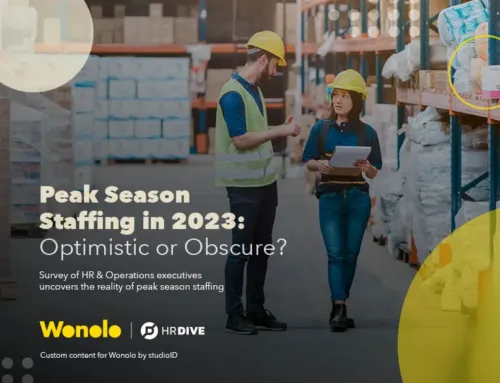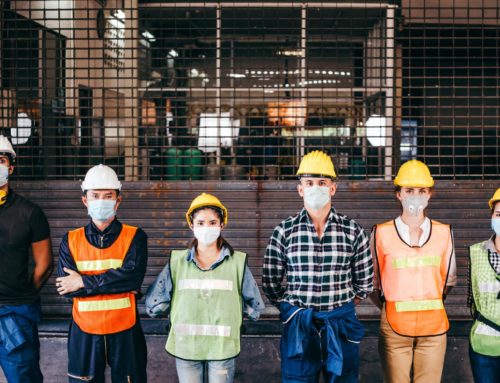Wonolo
When my uncle lost his job along with several hundreds of his co-workers, he also lost his pride. During the first month, he couldn’t even fathom informing his wife and kids about losing his job. He pretended to go to work every morning, and he applied to any position he could find through job boards and staffing agencies. In spite of his over-qualification and strong work ethic, he couldn’t even get a job interview with a local restaurant to wash dishes. As bills started piling up, he had trouble eating, sleeping and even looking at his wife and kids. It took him almost 18 months and thousands of interviews to find a job that would provide a viable source of income.
 In the past year, I’ve seen a plethora of articles, blogs and debates arguing against the emergence of “on-demand” startups, namely framed around the classification of their workers as independent contractors and the implication regarding workers’ rights. As I peruse these various arguments against on-demand startups, I cannot help but think about the struggle my uncle went through 10 years ago. What if these startups existed back then? Could he have made extra income to relieve some of the pressure while looking for a permanent job? By driving passengers around via a service like Uber or Lyft, delivering groceries and performing many other on-demand jobs, he could have at least paid the bills while maintaining the flexibility to show up for full-time job interviews.
In the past year, I’ve seen a plethora of articles, blogs and debates arguing against the emergence of “on-demand” startups, namely framed around the classification of their workers as independent contractors and the implication regarding workers’ rights. As I peruse these various arguments against on-demand startups, I cannot help but think about the struggle my uncle went through 10 years ago. What if these startups existed back then? Could he have made extra income to relieve some of the pressure while looking for a permanent job? By driving passengers around via a service like Uber or Lyft, delivering groceries and performing many other on-demand jobs, he could have at least paid the bills while maintaining the flexibility to show up for full-time job interviews.
Through my journey as a co-founder of Wonolo, a company that is also a part of this on-demand economy, I’ve constantly come across heartfelt stories similar to one that my uncle went through from amazingly talented people. These stories are all unique, but essentially the same at the core. These individuals were eager to work hard to meet their needs – provide for their families, pursue the lifelong dream of being an artist without worrying about paying rent, stay active while the kids are at school, or pick up additional activities during their retirement. But the sad reality is that no one would hire them. Then, they came across on-demand apps, which transformed their lives.
With hundreds of on-demand startups available, people are now finding ways to get a job with a push of a button when they want to, whether it’s for just one day or for several months. These startups are growing fast not only because there is a strong demand for it, but also because participants in this economy (on the supply side) love this very notion of the flexibility around work.
Think about the magnitude of what this means. According to a study conducted by Intuit, more than 60 million people will become freelancers by 2020 in the U.S. That’s more than 40% of the U.S. workforce. Uber currently has more than 1.5 million drivers worldwide, and based on the most recent publicly available data, 160,000 “partners” in the U.S. (drivers) are making extra income that they could not have had before. That’s more than the number of staff that many traditional staffing agencies manage at any given moment. Similarly, since our 2014 launch, Wonolo has created thousands of job opportunities for those who want to work at amazing companies – jobs that would have gone unfilled otherwise. With a 14.5% underemployment rate in the U.S., there will continue to be an influx of underemployed workers as they join the many on-demand startups to find flexible ways to make extra income. We’ve just barely scratched the surface.
Regardless of the concerns of policy makers, litigators, and lobbyists around worker classification, the on-demand economy is here to stay because of its core benefit – people feel empowered and liberated knowing that they can work when they want to. As these startups grow to become a mainstream way for people to find work, focusing our efforts on debating whether these workers are contractors or employees is backward-looking. The current U.S. labor law, which was originally written in the 1930s, has not seen many changes, even though the way people find work and define jobs has changed significantly in the past few decades.
Imagine enforcing rules or conditions regarding the use of older devices, such as typewriters, onto current internet or social networking norms. Now it wouldn’t make much sense, would it? Some flexibility and adaptability should therefore be implemented in order for innovation and current technology to be accounted for. The existing labor law still dictates that worker classification is binary – either contractors or employees – even though there are many gray areas that have emerged. This issue is amplified when you apply the same criteria of determining worker classification to on-demand startups, which are fundamentally built upon the belief of flexibility and individual autonomy.
Rather than dispute the worker classification issue, policy makers and legal experts should instead focus on working closely with startups and FORTUNE 500 companies to introduce innovative healthcare, benefits and insurance services and products to meet the needs of workers participating in the on-demand economy. These may include:
- A legal framework to embrace the emergence of a new employment category other than the binary contractor or employee
- Pathways for these workers to develop new skill sets to access more job opportunities
- Tools that can help workers easily manage hours, expenses and taxes
- The enablement of vacation, sick days and holidays
This way, we can work toward the shared and important goal of providing on-demand economy participants with the similar level of benefits that come with traditional, full-time employment. We are still in the first inning of this long journey in the on-demand economy, with lots of work to be done. However, we have an opportunity to impact billions of people’s lives. Let’s continue providing these workers with job opportunities to make extra income, and simultaneously work through how we can continue empowering and protecting them via innovative solutions.


![[Report] Beyond the Gig: Exploring Reliable Work Options for the Modern Workforce](https://info.wonolo.com/wp-content/uploads/2023/10/Worker-Preferences-Report-Header-Image-500x383.png)



